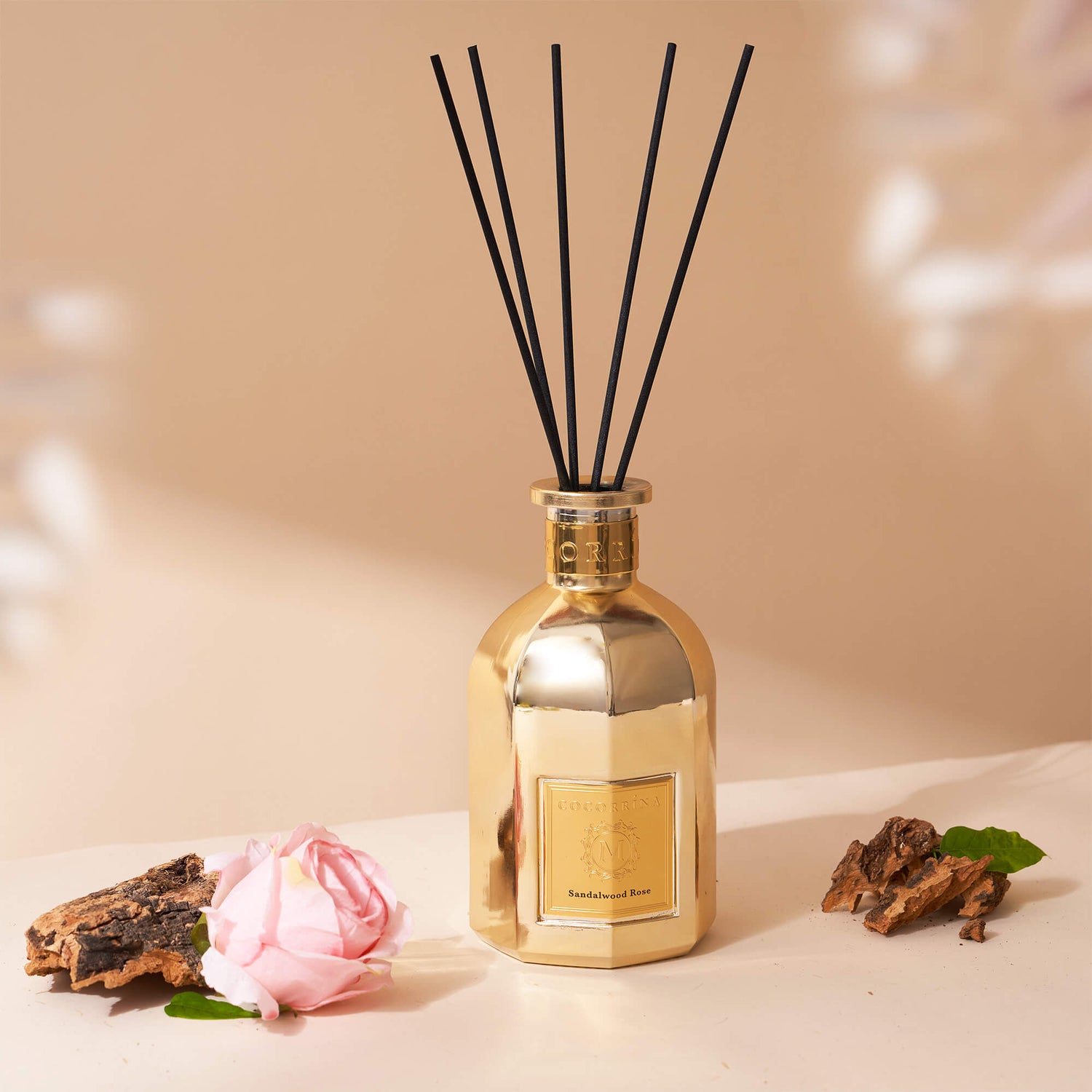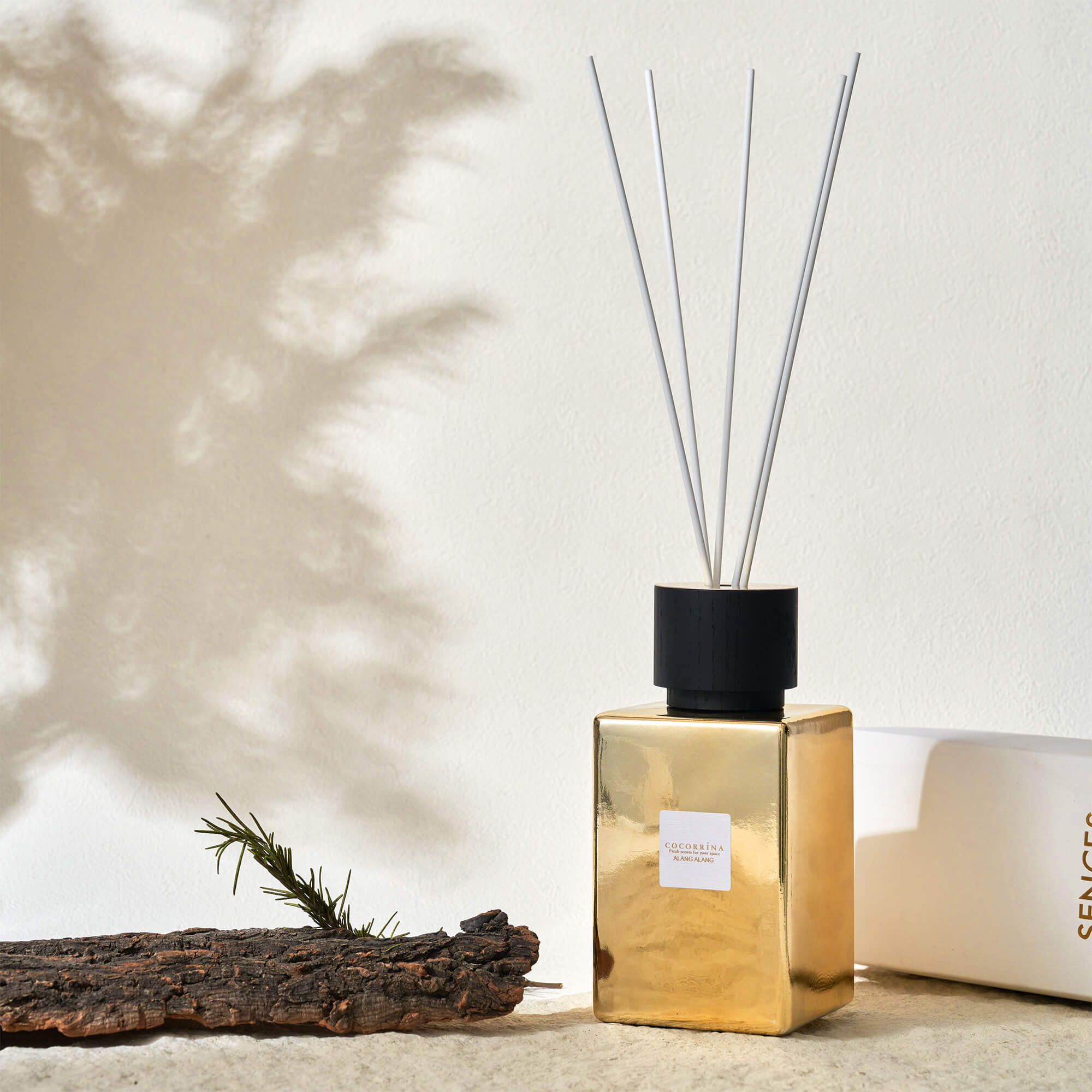Introduction
Reed diffusers are a popular choice for natural home fragrance, providing a continuous scent without the need for flames or electricity. However, cat owners should exercise caution. Many reed diffusers contain essential oils that can be harmful to cats. Understanding the risks and taking appropriate precautions can help ensure your home remains a safe environment for your feline friends.
Risks to Cats from Reed Diffusers
Toxicity of Essential Oils:
Certain essential oils commonly used in reed diffusers are toxic to cats. These include oils like eucalyptus, tea tree, peppermint, and citrus-based oils. Cats lack an essential enzyme in their liver to break down these compounds, leading to potential toxicity. Symptoms of essential oil poisoning in cats can include coughing, sneezing, drooling, lethargy, and in severe cases, respiratory distress.
Inhalation Risks:
Cats are particularly sensitive to airborne toxins. The volatile organic compounds (VOCs) emitted by some essential oils can cause respiratory irritation and distress. Even if a cat never directly touches the diffuser oil, inhaling the aroma can still pose a significant health risk.
Direct Contact and Ingestion:
If a cat comes into direct contact with the diffuser liquid, it can absorb the toxic substances through its skin or paws. Moreover, cats may accidentally ingest these toxins while grooming themselves. Symptoms of topical or ingested poisoning include skin irritation, vomiting, and neurological issues.
Safe Alternatives and Precautions
Choosing Safer Scents:
If you want to use reed diffusers without harming your cat, opt for cat-safe essential oils or fragrance-free options. Some safer alternatives might include vanilla or valerian, which are generally less harmful to cats. However, always consult with a veterinarian before introducing any new scents into your home.
Precautionary Measures:
To minimize risk, place reed diffusers well out of reach of curious cats. Ensure that the area is well-ventilated to reduce the concentration of any airborne chemicals. Regularly check the placement and condition of diffusers to prevent spills or leaks that cats could accidentally come into contact with.
What to Do If Your Cat Is Exposed
If you suspect that your cat has been exposed to toxic essential oils, act immediately. Remove your cat from the area to prevent further inhalation. Observe for any signs of distress or unusual behavior and contact your veterinarian right away. If your cat's skin has come into contact with the oil, wash the affected area with mild soap and rinse thoroughly under lukewarm water.
Conclusion
While reed diffusers are an effective way to enhance your home's ambiance, they can pose serious risks to cats due to the essential oils they often contain. It is crucial for pet owners to understand these risks and take proactive steps to mitigate them. Opting for cat-safe alternatives and using diffusers responsibly can help keep your furry companions healthy and safe.
Frequently Asked Questions (FAQs)
-
What should I do if my cat shows signs of essential oil poisoning?Immediately remove your cat from the exposure and consult a veterinarian. Provide fresh water and do not induce vomiting unless instructed by a professional.
-
Are any essential oils safe for cats? While some essential oils are less toxic to cats than others, it is generally best to avoid using any essential oils around them without consulting a vet.
-
Can I still use reed diffusers if I have cats? Yes, but use them cautiously. Opt for diffusers with cat-safe oils, place them out of reach, and ensure good room ventilation. Always monitor your cat for any signs of distress.




Leave a comment
All comments are moderated before being published.
This site is protected by hCaptcha and the hCaptcha Privacy Policy and Terms of Service apply.